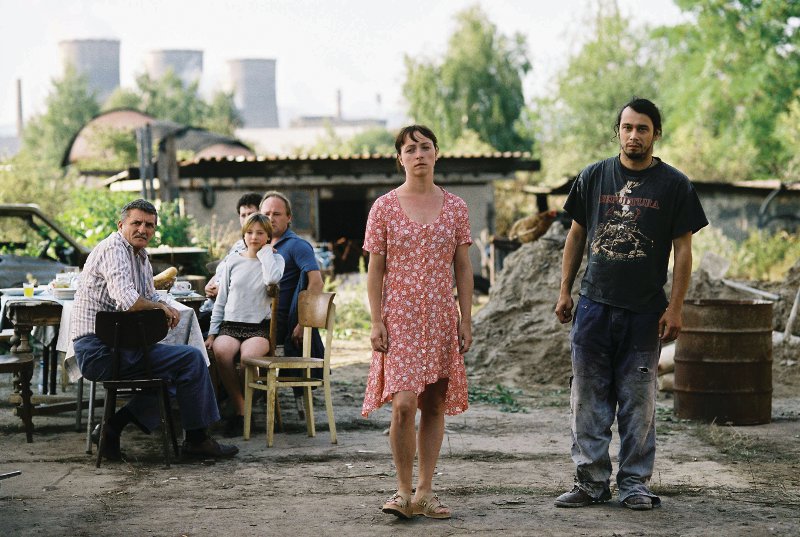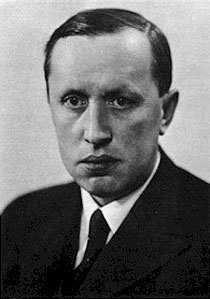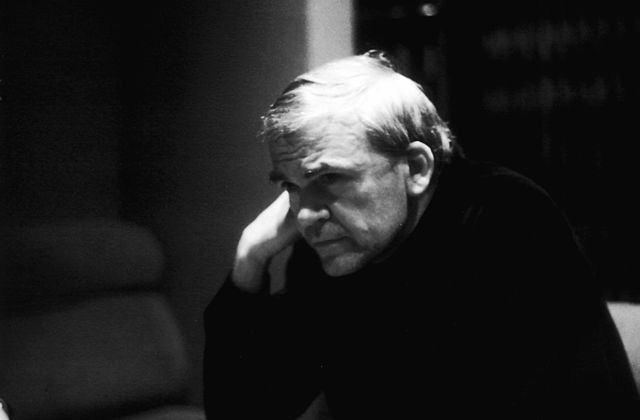“Return of the idiot” (“Návrat idiota”) and “Something like happiness” (“Štěstí“) are two movies dealing with the interpersonal relations. In both of them the viewer follow a group of Czech people from the small city, who live their ordinary lives and try to find happiness. Although at first sight both movies appear very similar (even the main characters are in both cases played by the same set of actors), they approach the issue from very different angles. In this essay I will attempt to analyze similarities and differences to establish if both movies deliver the same message.
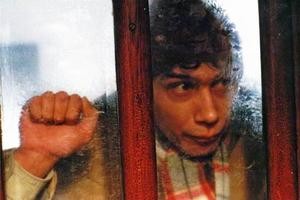
The “Return of the idiot” takes the wiever to a small Czech town, in which two families are tied together with the spider network of dysfunctional relationships. Two sisters, Anča and Olga, and two brothers, Emil and Robert, are all caught in the chain of one-sided feelings and opportunistic sex. Olga loves Emil, who is happy to sleep with her when his fiancée, Anča, is not around. Anča is in relationship with Emil, but she loves Robert, who lives in another town. He is not insensible to her, but he has also feelings to his wife, who is somewhere away (she does not play any main role in the movie). The viewer gathers all these facts as they appear to the main title character, František, a distant member of the brother’s family who arrives there released for the first time as adult from the mental institution.
The relations portrayed in „Return of the idiot” are all dysfunctional. The people are unable to create deep relations with their partners and family members. They cheat on each other, and they cheat on themselves as well. They are aware of their guilt and therefore they live constantly possessed by the fear of being discovered. Aware of their own insincerity, they don’t trust their partners which further damages their relationships. At the same time, they all long for the feeling of closeness, that is unavailable for them, and in pursuit for that moments of what they hope will give them a touch of happiness, they cynically reach for what is available there and then. And for these moments of ephemeral ecstasy they are ready to put their existing relationships at stake: they do not think about the consequences, they just want to take any chance that comes around, fearing that if they won’t go ahead, they will miss something they are looking for so desperately. But in the same time in their boring and ordinary lives, these moments of pleasure and the risk of being caught red-handed might be the only thing that bring some excitement to their existence.
These sick relationships casted a shadow on the family life as well. Since all four, Anča, Olga, Robert and Emil are washed out of any empathy, they cannot trust each other and that goes further. The dishonesty and mistrust damages even so basic relationships like between brothers or sisters. Due to the life of lies they live, they are unable to sustain proper relations in their families and their mistrust reaches even František, who despite being only honest, emphatic and trustworthy person around is beaten by Emil, who blames him for the collapse of his relationship with Anča.
The character of František is the only character in the movie that from the beginning is not repulsive to the viewer. He is tactful, honest, silent, emphatic and can be trusted. Despite that he is the one who is considered an idiot and who spent his childhood in the mental hospital, he is the only one who tries not only to do no harm, but also to fix the lives of the others. However, to watch other people suffer from their self-created misery hurts him deeply. And despite his best will, to solve the Gordian knot of the derailed relationships is too much for one, simple, quiet man who is not treated seriously by anyone. Lucky for him, that changes towards the end of the film, when he established the relationship with Olga. She starts to see not only the weird alien from somewhere else, but the human being in him. And since her eyes are open, he becomes an example to her that the life can look different that what she is used to. In the last scene of the movie, František decides to leave the town and he boards the empty train in the New Years day. But when he sees that Olga came to search for him, he disembarks and let the train leave without him. In that he resembles the Petit Prince from the book of Antoine de Saint-Exupéry : he came from some distant place outside everything and with all his naivety he tries to learn about the world that he found himself in. But the things that he learns are not what one could hope for. He tries not to intervene, but just observes and notices the little things that are invisible for the others. In contrast to everyone surrounding him he is innocent and pure, and thanks to it the others can see themselves in him like in the mirror. And it is that purity and innocence that finally brings Olga closer to him. He can’t save everyone from the misery they created themselves, but at least he has a chance to save that one soul. And, just as Petit Prince, he undertakes that challenge and he gets off the train, as he knows that one is responsible for what he tamed. But is this last scene really a happy end? Or is it just a new beginning?
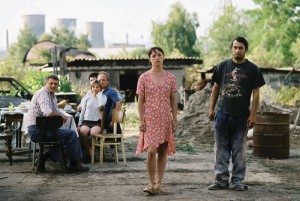
The second movie discussed in this essay also deals with the relationships of the people from the small Czech town. And here the viewer can observe the love triangle: Tonik loves Monika, but she is in relationship. In the beginning of the movie her boyfriend leaves for the new life in the USA, promising her to send for her as soon as it will become possible. Unlike like in “Return of the idiot”, here the relationships does not overlap and we can observe separate issues. The relation between Monika’s parents, who seem to be very different from each other, are further undermined by that Monika’s father does not live to expectations of his wife. The most troublesome relationship is that of Daša and Jara. Daša is a mentally unstable mother of little twins who is desperately in love with Jara, for whom she is just one of his numerous lovers. When Daša’s mental state deteriorates to such extreme, that she has to be locked away in the mental hospital, Tonik and Monika, who were already relieving her in her mother duties, step up and take over the care of the twins full time. When Jara comes up and demands them to leave Daša’s flat (for which he pays the rent), as he wants to make it a hideaway for his encounters with lovers, Tonik persuades Monika to move with the twins to his half-ruined farmhouse, when he lives with his aunt. They lead a live of the family and Tonik starts to believe that it will remain this way forever. This is not welcomed by Monika’s mother, who thinks that her American boyfriend is better choice for her. Also Tonik’s father is not enthusiastic when his son undertakes some efforts to make the farmhouse more suitable for living, patches the leaking roof and builds a luxury bathroom. He is of the opinion, that Tonik should sell the family estate to allow the nearby factory to demolish it and expand on its land. Both Tonik and Monika does not listen and continue their chosen life, growing closer to each other. But this idyllic situation is harshly interrupted when Daša, who is released from the hospital, arrives unannounced with Jara and takes her children away. Humiliated by Daša, Monika decides to join her boyfriend in America. When she regrets that decision and returns to her hometown, she learns that Tonik finally decided to sell the house and disappeared.
“Something like happiness” focuses on the difference between two types of the relationships. One more traditional, where living together means to share the same values and the common life is not only matter between two single persons, but involves the whole family and friends circles. The other one is that of the modern liberty and independence, when the two get together when they see that it can be beneficial for them. It is shown well by the discussion between Monika’s parents: her mother thinks that she should be with her boyfriend, because he has a good prospects of the better live in the USA. She likes Tonik, but she does not believe that he will be able to provide her daughter with decent standard of life, as Tonik refuses to take muddling job in the factory and instead lives of some casual jobs, paying for his freedom with the financial struggle. Monika’s father sees Tonik as a honest man with a golden heart and traditional values. In his view this is what’s the most important in the relationship.
It can be argued, as the New York Time critic, Stephen Holden does, that these traditional values are rooted in the East European standards of life, where people from the poor background still have to live in multi-generational extended families due to lack of available housing. However similar motives are also present in the Western cinematography, for example “The Shipping News”, a 2001 movie by Lasse Hallström deals with a similar issue. In this movie the main character, Quoyle, after his marriage with selfish and abusive Petal tragically ends, is persuaded by his aunt Agnis, who is his only remaining relative alive, to move to the far, northern island of New Funland, when he discovers importance of the family life and traditional values.
In “Something like happiness” as well as in “Return of the idiot” we observe the relationships of the other people with the life of the outsider, in both cases played well by Pavel Liška. František distance to the world is caused by his time spent in the mental institution, for Tonik it is a matter of choice: he consciously rejects the modern lifestyle and tries to hold to the traditional values and family history even at the price of the financial difficulties and living in sub-standard conditions. Both Tonik and František, despite their apparent unfitness into the surrounding world, are the ones that the viewer will most likely become fond of. The life of the both is not easy due to their sensitivity and vulnerability, but their faithfulness to principles in the end turns out to be worth more than the shallowness of the others and the good prevails. Yet nor for Tonik, nor for František the movie ends with an explicit happy end. Although both movies suggest such possibility, the question if they will find their happiness remains open.
The relationships portrayed are quite different between the two movies: in “Return of the idiot” the misery is caused by the characters themselves: they all long for happiness but they are unable to reach it due to their own human imperfection. The characters of “Something like happiness” are confronted with the choice between traditional values and modern understanding of success. It’s up for them to decide and, as it is shown on the case of Monika, going after “the American dream” turns to be wrong choice. But from the other hand example of Tonik suggests, that by voluntarily staying out of the main current of the contemporary life, one gives up his fate to be decided by the choices of the other people. Because despite that the modern life might be unable to deliver happiness, it is not the traditional values where the source of power is: Tonik chooses his derelict estate over the modern factory and for some short time he finds his happiness in it, but in the end of the movie it is the factory that comes out victorious and his farmhouse is demolished to give space for extension of the industrial zone.
Jara, the one who lives to the modern standards has money, good work, power, he attracts numerous lovers and Daša offers him her love. But he never finds the happiness and it is doubtful that he will ever finds it, because he made too many mistakes, he lied too much in his life and he lacks empathy – just like Emil and Anča from “Return from the idiot”. It is Tonik, who despite lack of money and that his fate depends on the choices made by the others, has few moments of the true happiness and some prospects of happy future, if only Monika manages to find him. So the choice faced by the characters of the movie is not only the choice between traditional and modern values, but between happiness and power. The power, by definition, allows people to fulfill their needs at the expense of others. But the happiness is elsewere. The message coming from both movies seems to be clear on one thing: life will never be good for you, if you won’t be good for others.
Movie info on IMDB:
“Return of the idiot”, dir. by Saša Gedeon, 1999
“Something like happiness”, dir. by Bohdan Sláma, 2005

